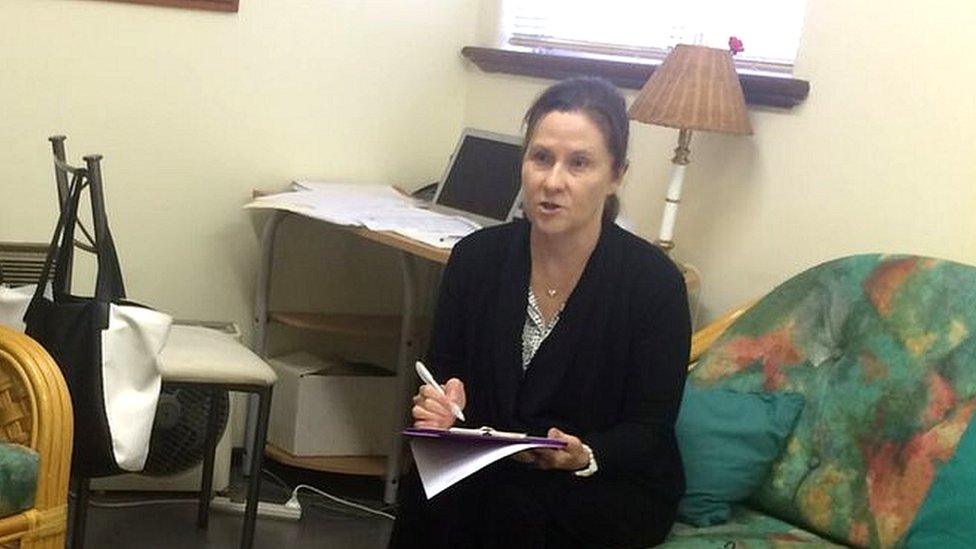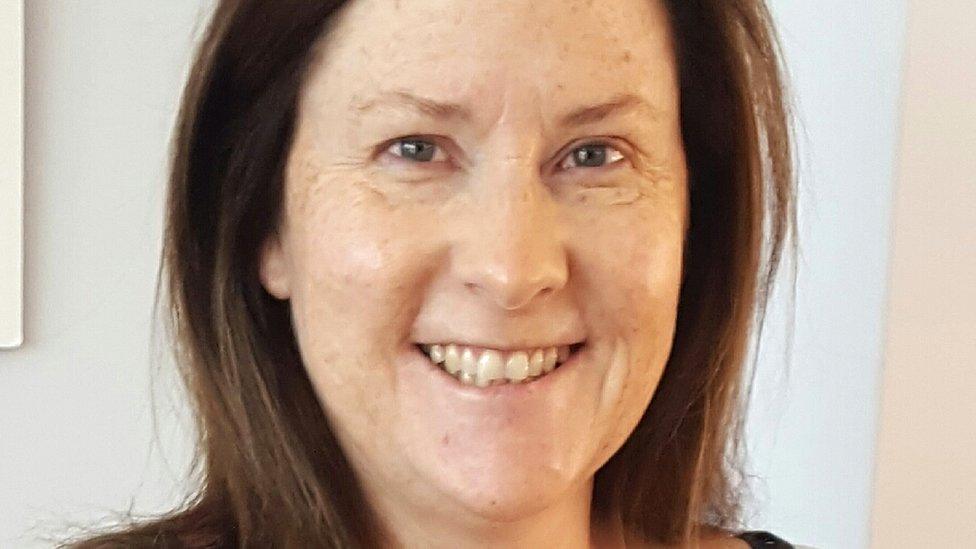100 Women 2016: 'Every person is redeemable' - my job treating rapists
- Published

Psychologist Erin Sweeny has spent more than 20 years treating sex offenders. She says it is important to separate the behaviour from the person and to try and understand what has led them to offend.
My work has opened my eyes to human behaviour. In many ways sex offenders are all different, but what they have in common is always an unhappy childhood - usually due to abusive, neglectful, absent or simply unengaged parenting.
Because their earliest attachment was usually with the mother this contributes to how they first began to experience and see the world, especially women. Many offenders have an entitled way of thinking about sex and women. Many struggle with intimacy - they want it but struggle. Many struggle with emotions - the only one they can reliably access is anger. Many are motivated by revenge.
But they come from all walks of life in terms of education, employment, religion and money.


What is 100 women?
BBC 100 Women names 100 influential and inspirational women around the world every year. We create documentaries, features and interviews about their lives, giving more space for stories that put women at the centre.
Other stories you might like:
'I married a man to keep my girlfriend'
'Adults are so obsessed with children they have no time for important things'

In a typical session, I need to explore my client's history, identify risk factors, and develop a therapeutic relationship. I need to be warm, empathetic and genuine, even though with some clients this can be very hard.
I might be exploring their offending in detail - their thoughts, feelings and behaviour leading up to the actual offence. Or I might be working on issues of consent, or sex education, or problems with intimacy.

Erin says she needs to be warm and empathetic with her clients
How the media portrays sex and women has a lot to answer for - objectifying women, especially in some music videos freely accessible to young boys, who are experiencing an enormous rush of emotions at puberty.
If a young man with a troubled past starts associating violent thoughts and images with sexual arousal, then this begins a chain of reinforcement.
One man I treated had raped a woman in front of her partner and beaten them both savagely. He was, on the surface, good-looking and easy to talk with - but beneath he was extremely troubled, harbouring vengeful thoughts and grievances that were triggered when he was rebuffed, stressed, or when ruminating on what others had done to him. He was also aroused by violent fantasies. When he had been drinking alcohol his thinking deteriorated further.
It goes without saying that these people can be difficult characters to be around. What they have done to others can be truly unbelievable.
But I have learned to separate their behaviour from them as a person and I always try and look for some redeeming quality on which to focus. Sometimes that is very hard. Sometimes they push your buttons and I must admit I have sometimes thought of all sorts of terrible things that I might want to do to them.
Everyone is redeemable
Sex takes on other meanings when you are faced with this work on a daily basis, but maybe it helped that I was already married when I first took this role. I am very close to my partner and have discussed cases with him (obviously without disclosing key details) so he is aware of their impact on me. I know I am unusually observant when out, noticing if women are in vulnerable situations, or who is talking to children. It has changed me for sure.
But it can be hard when all you hear from the community about sex offenders is "Kill them, lock them up forever!", when you know the public hates what you do and that you can't talk to your friends about your day at work because they don't understand. But research suggests that treatment, if following the correct principles, can lead to change , externaland that sex offenders overall don't reoffend as much as everyone thinks they do, external.
I guess I believe that at some level every person is redeemable, some are just much harder to redeem. The people I see do not just wake up one day and out of the blue behave in horrible ways. There is always a series of events and decisions that brought them to the offence and therefore there are things about them that can be changed and enable them to live a better life, if they choose this.
Not all the men I see are ready to make the necessary changes and some are very damaged and dangerous. We don't know all the answers yet for these cases, but I will continue to work with those I can to ensure the safety of others.